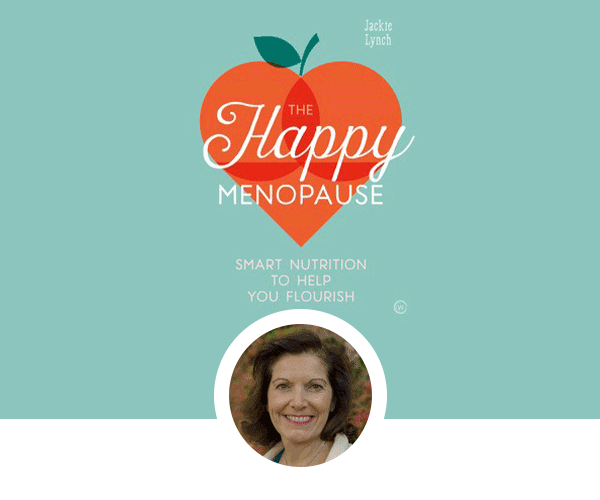Nutrition for Healthy Bones by Jackie Lynch

Bone health is a hot topic for women in midlife, because we reach peak bone density at around 30. It gradually declines from there, with a sharp drop after the menopause, decreasing by up to 20% which increases the risk of fractures. Bones contain cells called osteoclasts which dissolve old bone and osteoblasts which build new bone. A regular renewal process helps to keep our bones strong but bone tissue is reactive and needs impact to grow, which is why resistant forms of exercise are so crucial.
The right nutrition is also super-important because it provides the building blocks to keep your bones in great shape. Everyone always thinks of calcium when it comes to bone health and it’s true that it plays a very important part in keeping our bones hard and strong. Eating plenty of calcium-rich foods such as dairy products, green vegetables, nuts and seeds will help to ensure you have plenty of calcium in your diet. And sardines are an absolute winner when it comes to calcium, as they contain about 5 times as much as milk, because of the soft bones. But bone health is about more than just calcium, because it needs to work in synergy with some other really important nutrients to be effective.
Here are 5 other nutrients that you need to focus on for strong bones:
- Vitamin D – not only does vitamin D help build our bones, but our body can’t actually absorb calcium without optimum levels of vitamin D. Vitamin D is only found in food in very tiny amounts, and the best source is actually sunlight, as it is synthesised by the body through exposure to sunshine. It’s a fat soluble vitamin, which means the body can store it for a period of time if you’ve been in the sun regularly over the summer, but we can all be pretty low by January and February as our internal stores become depleted.Vitamin D deficiency is also a concern for anyone who avoids sun exposure for health or cultural reasons. Requesting a blood test from your GP is essential if you’re concerned about vitamin D levels in case you need a therapeutic dose, but a standard dose of 1000IU of vitamin D3 daily should keep most of us and our bones in great shape.
- Magnesium – this really is the menopausal woman’s friend on so many levels, because it helps to calm the nervous system and relieve anxiety; it boosts energy; it relieves insomnia and it supports our bone health as well. Magnesium is required to convert vitamin D in the body to the active form which enhances the absorption of calcium – you could say that it kick-starts the whole chain reaction. Good sources of magnesium include leafy green vegetables such as rocket, kale and broccoli, brown rice, nuts and seeds.
- Vitamin K – we tend to think of this as the blood clotting vitamin, because vitamin K supports the action of certain proteins involved in the clotting process. But it’s also very important for bone health, because it helps to manufacture osteocalcin, a protein which hardens the calcium during the formation of our bones, making them dense and strong. Kale, cabbage, spring greens, broccoli, asparagus, parsley and spinach are all great sources of vitamin K, which is another excellent reason to eat your greens!
- Vitamin C – this powerful antioxidant has multiple roles in the body, keeping us fit and well. When it comes to our bones, we need it for the production of collagen, which acts as the cement in the bone matrix holding everything together and helping our bones to remain flexible, so that we bounce and don’t break if we fall down. The best source of vitamin C is a raw red pepper, which contains almost 3 times as much as an orange, and leafy green vegetables like spinach, kale or rocket contain about twice as much. So think vegetables rather than fruit if you’re looking for a vitamin C boost.
- Protein – the human body is made of protein and we need it for the growth and repair of every body cell and our bones are no exception to this. A diet rich in protein will give your body the tools it needs to build strong bones, so aim to eat protein with every meal and snack. Good sources include lean meat, fish, eggs, lentils, chickpeas, beans, soya, quinoa, nuts and seeds, so that should provide you with plenty of options to keep things interesting.
Alcohol can impair the action of osteoblasts; fizzy drinks and tannins in tea may affect calcium levels and smoking decreases bone density by 25%, so these are all things to limit to support healthy bones.
If you are thinking about using a supplement, then consider using a bone complex, which contains a carefully calculated dose that combines the different elements which support bone health. High doses of any single nutrient is never a good idea, because vitamins and minerals are designed to work in synergy, which is why eating plenty of the right foods is a sensible way of ensuring the correct balance. Always check with your doctor if you’re taking any medication, to avoid any potential interaction with supplements.
Jackie Lynch is a Registered Nutritional Therapist and host of the popular diet & lifestyle podcast, The Happy Menopause http://bit.ly/2G6yE6T. Her new book The Happy Menopause: Smart Nutrition to Help You Flourish https://amzn.to/397BhlA is out now. Follow her on social media at @WellWellWellUK or visit her website www.well-well-well.co.uk